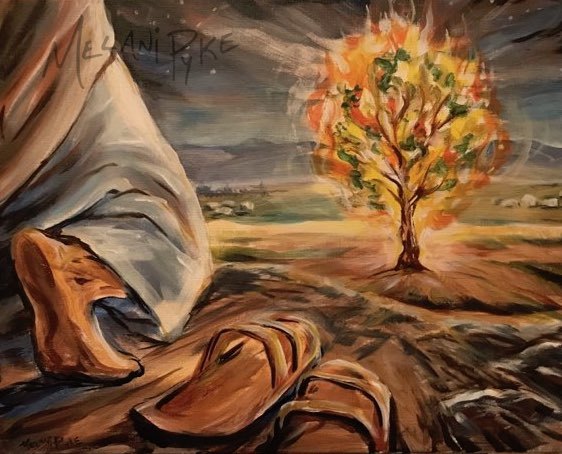
HOLY. It’s a word that I hear used repeatedly, outside of the church context, in two specific expressions: 1) as an explicative “Holy #$%*!” or as an expression about hypocrisy “Holier-than-thou.” Somehow we’ve moved far from the original Biblical sense of the word קָדוֹשׁ or Qadosh, or “holy” meaning “to be set apart.”
If you think back to the story of Moses encountering the living presence of God at the burning bush, he’s told to remove his sandals for he is standing on holy ground. It’s not an everyday experience, it’s something out-of-the-ordinary for which you should sit up straight and pay attention. The opposite of holy is conveyed by the intellectualized word “profane” or in today’s reading as “defiled.” Whereas holy is unique, special, to be noticed; profane is what you take for granted because you encounter it every day. It’s out of this notion of recognizing, embracing and paying attention to the holy in life, that the ancient Israelites developed many different rituals to ensure that they were paying attention, and living a life set apart, in other words, to focus on what God created us for and to do.
In theology, we say that we’re intended for the Imago Dei and the Missio Dei. Nothing like a little Latin to complicate things. Imago Dei (God’s image) is a reminder that we are each and all created in God’s image – intended to be part of God’s triune community that leads from life to life. Genesis 1:27. Missio Dei (the Mission of God) is what we are to join into: God’s mission of salvation in the world. Mission comes from the very nature of God (imago dei). “So to participate in mission is to participate in the movement of God’s love toward people, since God is a fountain of sending love.” (D. Bosch)
The conversation between Jesus and the Pharisees in today’s reading points to the way in which we all too easily move from holy as set apart (identity in regards to vocation, engagement, testimony, forward-thinking.) to holy as apartness (identity, belonging, barriers, tribal definition, looking-back-to-the-past). Jesus points out the hypocrisy of those who claim to live every aspect of their life as holy when in fact the religiosity and self-absorption is an act of defilement. In their desire to live holy lives they are wholey consumed by living to avoid the contagion of sin or uncleanliness by the profane.
But the Pharisees are the only ones to shape their life around the practice and pursuit of apartness. In Afrikaans, the word apartness is “apartheid” – which justified a system of racism. Nazi thought envisioned the Germans as “Herrenvolk” (or master race) pure and set-apart from the rest of the sub-populations of the human race. Jesus challenges notions of identity as holiness, of incongruence between what we say and what we do, between our inside and outside.
Questions for the practice of Examen & Contemplation
- What grabs your attention in today’s reading?
- How do you understand the idea of holiness and apartness?
- How does this word invite us to live holy lives in a world shaped by apartness, consumerism, & tribal identity?
Download the Text Study Sheet we’ll use in our Vocabulary of Faith discussion HERE.